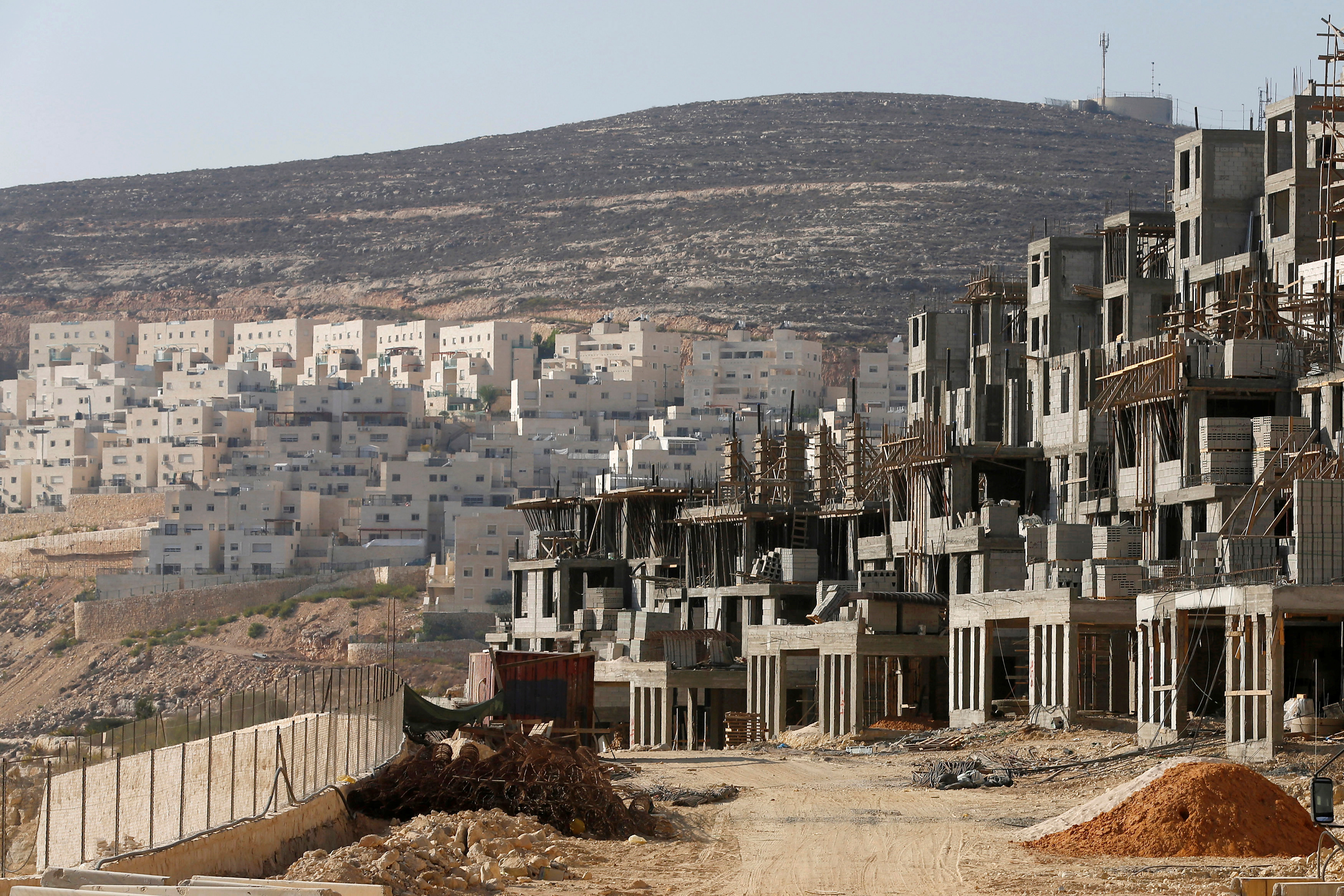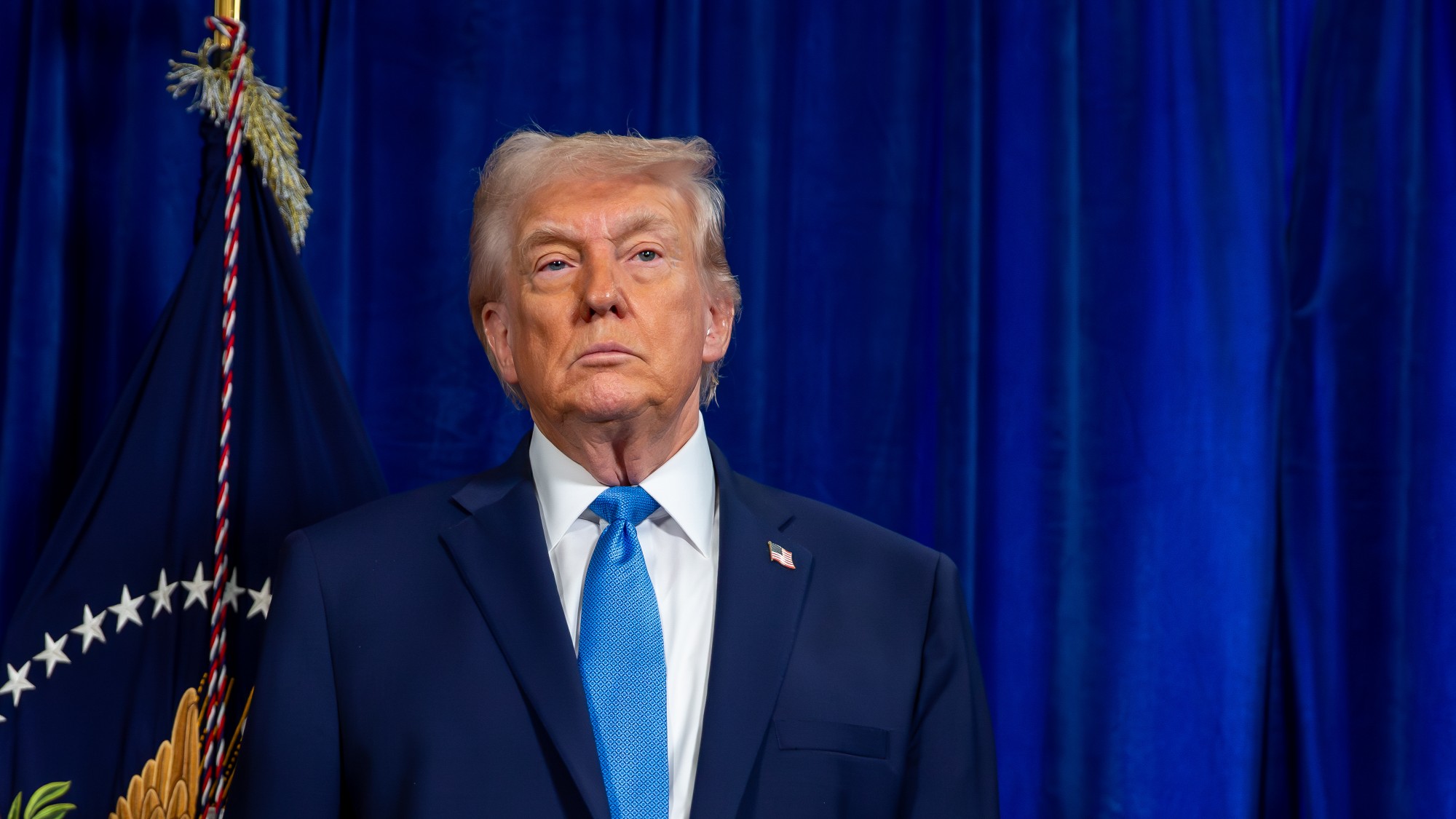Israel's controversial settlements, explained
The Trump administration supports Israel's West Bank expansion, but most of the world does not. What happens now?

A free daily email with the biggest news stories of the day – and the best features from TheWeek.com
You are now subscribed
Your newsletter sign-up was successful
The Trump administration supports Israel's West Bank expansion, but most of the world does not. What happens now? Here's everything you need to know:
How many settlements are there?
More than 100 settlements now dot the hilly landscape of the West Bank, a 2,100-square-mile area west of the Jordan River that, in theory, will someday become the heart of a Palestinian state. The international community considers those Jewish settlements illegal — or in the U.S. government's case, "illegitimate." That's because Israel occupied the West Bank and East Jerusalem after winning the 1967 Six-Day War, and the Geneva Conventions prohibit settling people on the territory of another nation won in war. Yet under Prime Minister Bibi Netanyahu, the settler population has ballooned by 100,000 people over the past eight years, to a total of 570,000 settlers. As a parting protest against that policy, the outgoing Obama administration in December withheld its veto and allowed a U.N. Security Council resolution to condemn the settlements. Israel's construction work "has created a sense of urgency and of panic," says Arab-Israeli negotiator Aaron David Miller.
The Week
Escape your echo chamber. Get the facts behind the news, plus analysis from multiple perspectives.

Sign up for The Week's Free Newsletters
From our morning news briefing to a weekly Good News Newsletter, get the best of The Week delivered directly to your inbox.
From our morning news briefing to a weekly Good News Newsletter, get the best of The Week delivered directly to your inbox.
What do the settlements consist of?
Some, such as Ariel, are sprawling developments of stone apartment blocks housing 20,000 people, along with synagogues, shopping centers, schools, and a university. In addition to these "approved" settlements are another 100 or so unapproved outposts. These isolated camps are usually located deeper into the West Bank — sometimes closer to Jordan than Israel — and are often established by the most politically radical or ultra-Orthodox Jews, who arrive with tents and trailers. Life in and around the settlements can be tense and violent, for both Palestinians and Jews. (See below.)
Why are they being built?
The Israeli government says it's the result of "natural growth" of its tiny, crowded nation. About 80 percent of settlers live near the pre-1967 "Green Line" separating Israel and the West Bank; Israeli officials say these settlers can be incorporated into Israel in a future peace deal through land swaps. But many Jewish settlers — particularly those in the more isolated outposts — believe that they have a religious and historical claim on the land, which they call by the biblical name Judea and Samaria. These settlers have created facts on the ground that would make a two-state solution more difficult, if not impossible. "How are they going to evacuate all of us?" says settler leader Davidi Perl. "We are winning." As the settler population has grown, so has the popularity of pro-settler political parties such as Jewish Home — forcing Netanyahu to the right.
A free daily email with the biggest news stories of the day – and the best features from TheWeek.com
Is a two-state solution still viable?
It seems increasingly unlikely. Even with a map change, the government would have to find a way to evacuate and relocate the more than 80,000 people in more isolated settlements and outposts — many of whom have pledged to fight to defend their homes. Netanyahu and many Israelis say Palestinians have only themselves to blame for this situation — and for the failure of the peace process. They point out that in 2008, Palestinian leaders flatly turned down a peace proposal in which Israel offered to withdraw from 93 percent of the West Bank, compensating Palestinians with land from the Negev. And when Netanyahu agreed to Obama's demand for a 10-month settlement freeze in 2009, Palestinian leaders refused to attend peace talks. The real obstacle for a two-state solution isn't the settlements, Netanyahu said in response to the U.N. resolution, but "the ongoing Palestinian refusal to recognize Israel as the state for the Jewish people in any borders."
What happens without a two-state solution?
In a fiery exit speech, outgoing Secretary of State John Kerry in December warned Israel that it was heading toward a stark choice between being Jewish or democratic. If Israel embraces the "perpetual occupation" of a one-state future, said Kerry, it will have to deny full political rights to its rapidly growing Palestinian population. In that scenario, the Israeli-Palestinian conflict will grow ever more bitter and violent, and Israel will become a pariah nation that's never at peace.
What effect will President Trump have?
Trump condemned the U.N. resolution against the settlements, and with opposition from the U.S. removed, the building of settlements will increase. Netanyahu this week announced approval of 2,500 new units in the West Bank, and since Trump's victory, the number of planning approvals for housing in East Jerusalem has quadrupled. Trump has also promised to recognize Jerusalem as Israel's capital, and to move the U.S. Embassy there from Tel Aviv — a move Palestinian leaders warn will spark another violent intifada. Trump's choice for U.S. ambassador to Israel is bankruptcy lawyer David Friedman, who has helped raise millions of dollars for settlements and calls the two-state solution an "illusion.'' Trump, however, says he plans to send his son-in-law, Jared Kushner, to the region to negotiate a peace deal. "All my life I've been hearing that's the toughest deal in the world to make," Trump said, "but I have a feeling that Jared's going to do a great job."
Life in the settlements
In some areas of the West Bank, like parts of the Gush Etzion bloc, things are relatively peaceful. Arabs and Jews walk together, shop together, and work alongside one another at the local supermarket. In other settlements, life couldn't be more different. Security is tight, and areas are segregated into heavily militarized Jewish and Arab zones. Violence regularly breaks out on both sides. In the most radical Jewish outposts, armed militant settlers have been accused of intimidating Palestinians, poisoning their crops, and uprooting their olive trees. In the past year, Palestinians launched what some call the knife intifada, with militants — some of them teenagers — stabbing more than 200 Israeli soldiers and civilians. "Whenever you are on the road, you're worrying if somebody is going to lay ambush to you or throw stones or worse," says Chaim Silberstein, a resident of the Beit El settlement. But Silberstein and his family refuse to leave, saying the Jewish people have history there going back 4,000 years. "It's an amazing feeling that you are connected to the deepest roots of your nation, of your land," he says.
-
 Political cartoons for February 8
Political cartoons for February 8Cartoons Sunday’s political cartoons include going down the drain, American history, and more
-
 Touring the vineyards of southern Bolivia
Touring the vineyards of southern BoliviaThe Week Recommends Strongly reminiscent of Andalusia, these vineyards cut deep into the country’s southwest
-
 American empire: a history of US imperial expansion
American empire: a history of US imperial expansionDonald Trump’s 21st century take on the Monroe Doctrine harks back to an earlier era of US interference in Latin America
-
 Epstein files topple law CEO, roil UK government
Epstein files topple law CEO, roil UK governmentSpeed Read Peter Mandelson, Britain’s former ambassador to the US, is caught up in the scandal
-
 Iran and US prepare to meet after skirmishes
Iran and US prepare to meet after skirmishesSpeed Read The incident comes amid heightened tensions in the Middle East
-
 Israel retrieves final hostage’s body from Gaza
Israel retrieves final hostage’s body from GazaSpeed Read The 24-year-old police officer was killed during the initial Hamas attack
-
 China’s Xi targets top general in growing purge
China’s Xi targets top general in growing purgeSpeed Read Zhang Youxia is being investigated over ‘grave violations’ of the law
-
 Panama and Canada are negotiating over a crucial copper mine
Panama and Canada are negotiating over a crucial copper mineIn the Spotlight Panama is set to make a final decision on the mine this summer
-
 Why Greenland’s natural resources are nearly impossible to mine
Why Greenland’s natural resources are nearly impossible to mineThe Explainer The country’s natural landscape makes the task extremely difficult
-
 Iran cuts internet as protests escalate
Iran cuts internet as protests escalateSpeed Reada Government buildings across the country have been set on fire
-
 US nabs ‘shadow’ tanker claimed by Russia
US nabs ‘shadow’ tanker claimed by RussiaSpeed Read The ship was one of two vessels seized by the US military